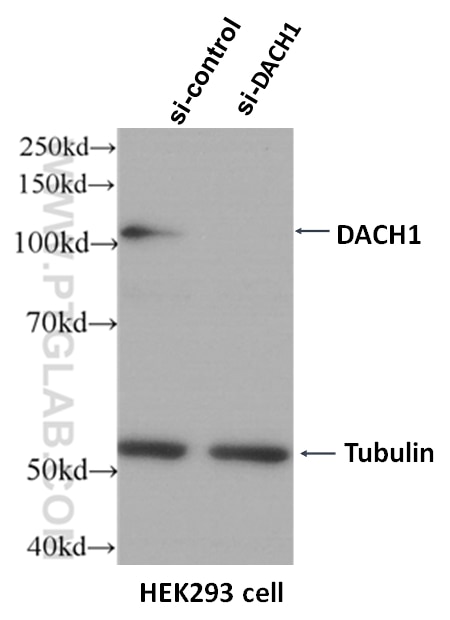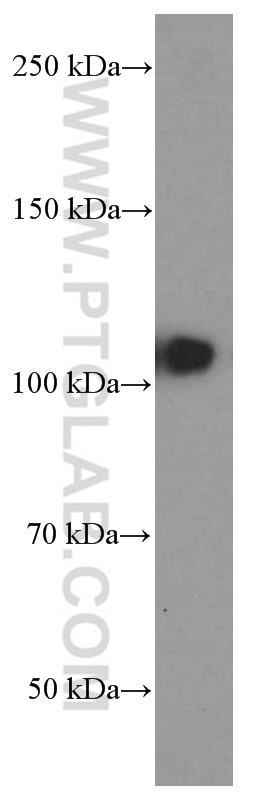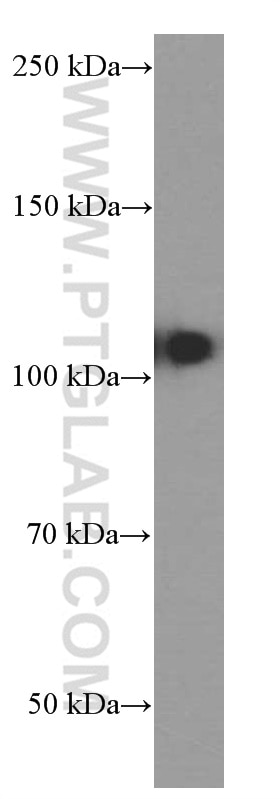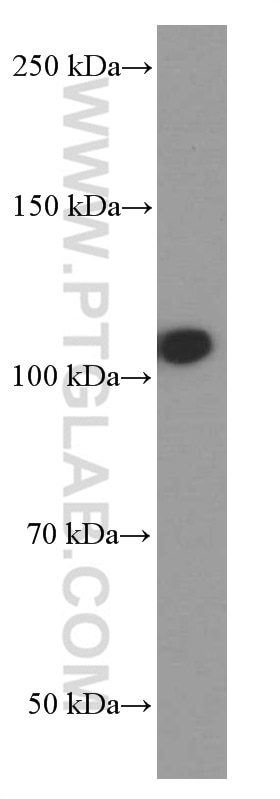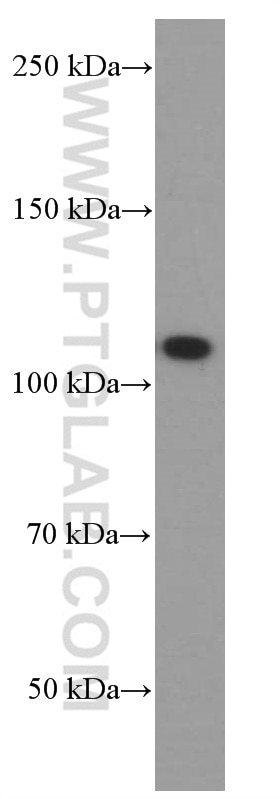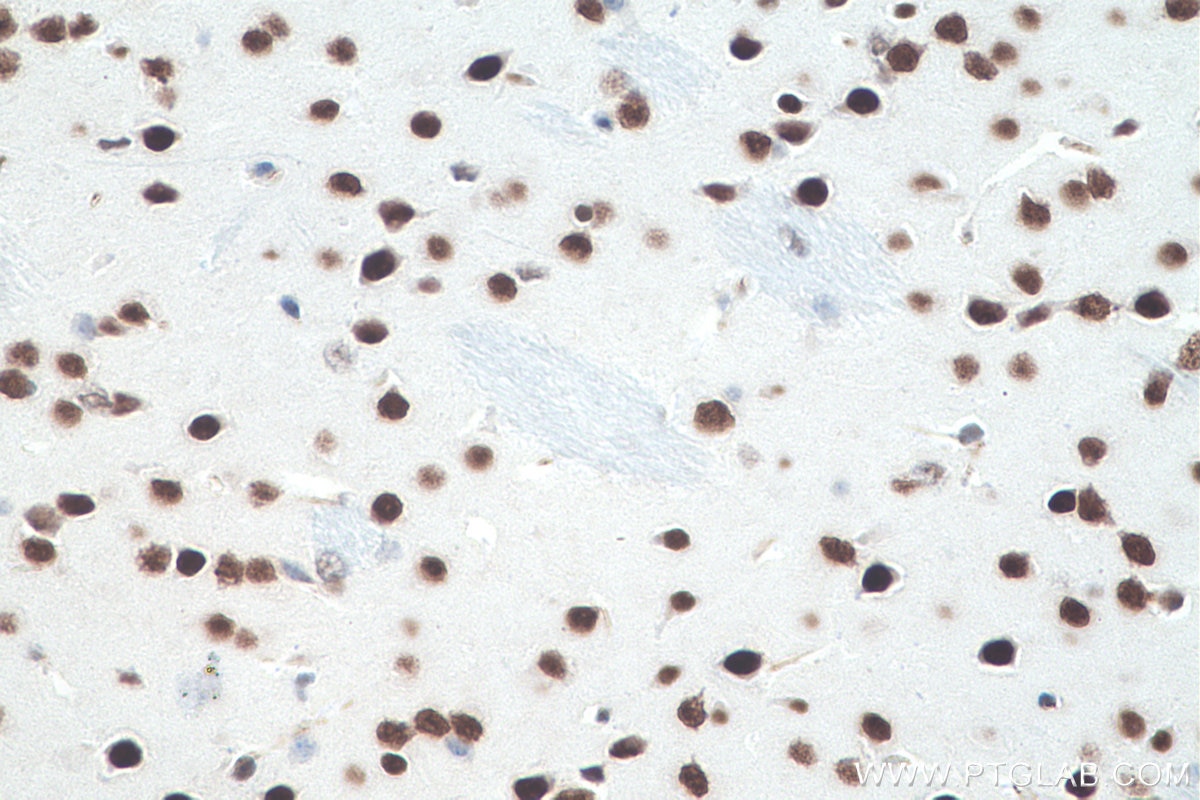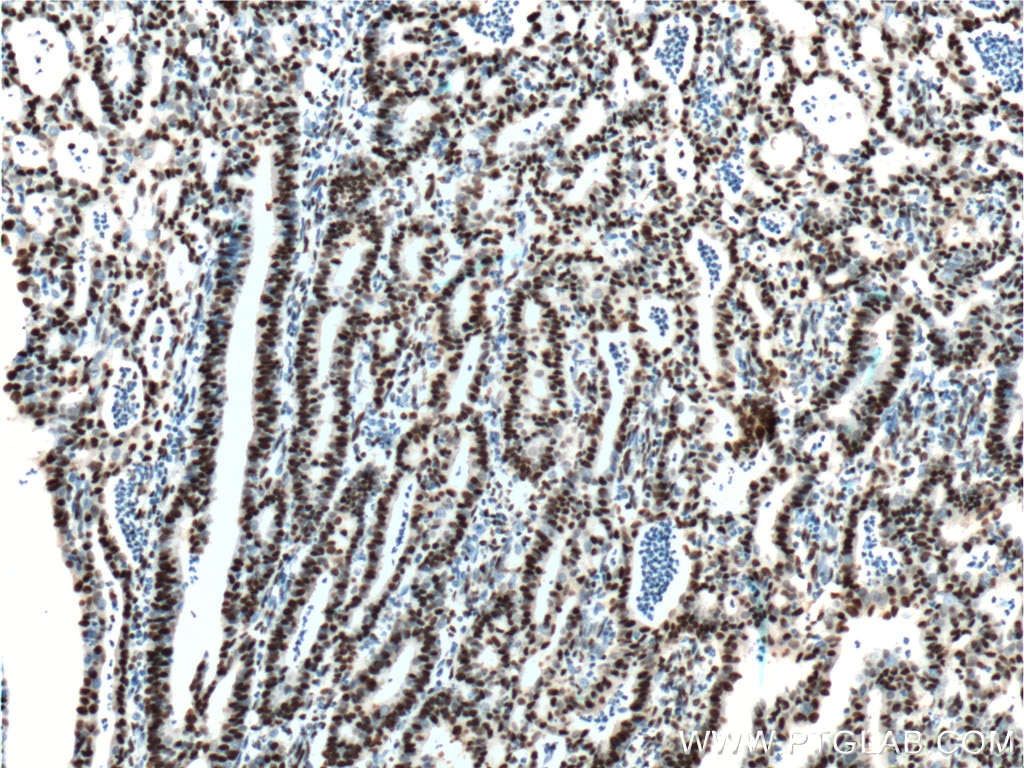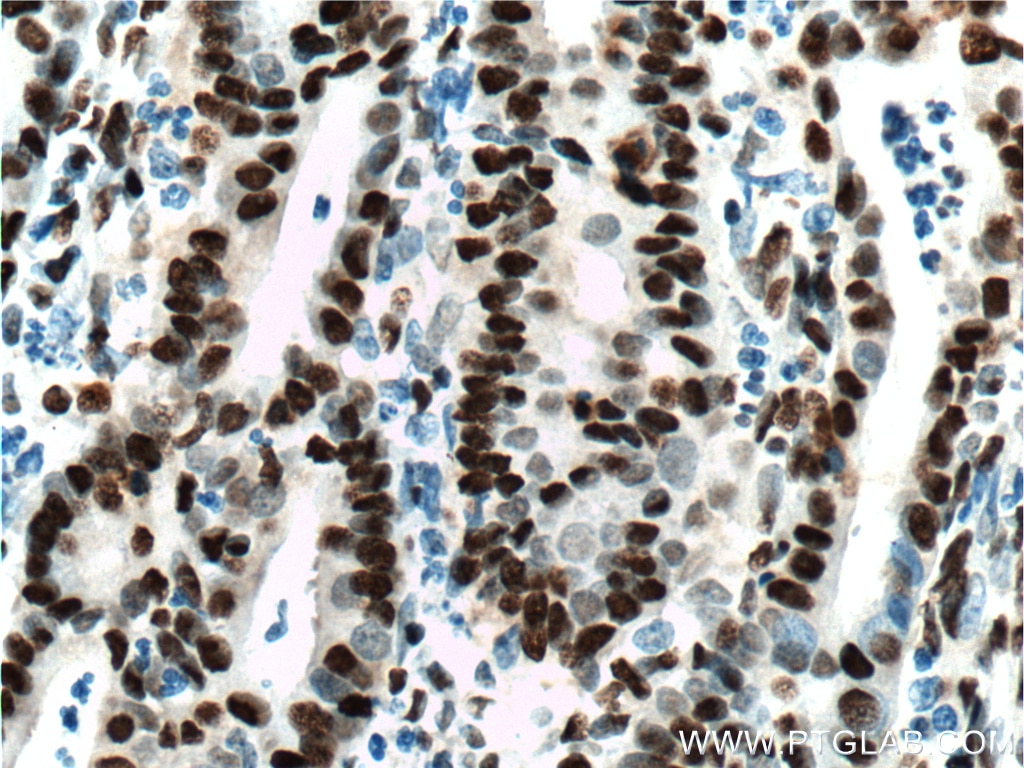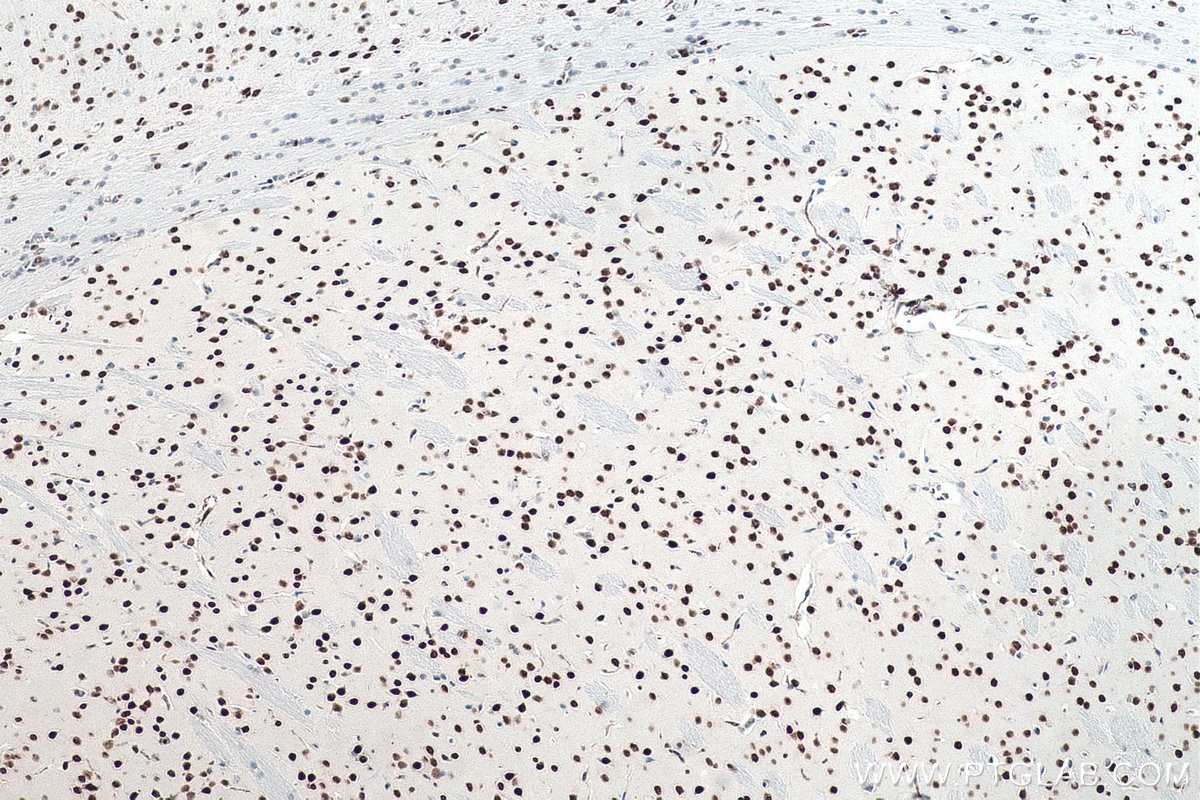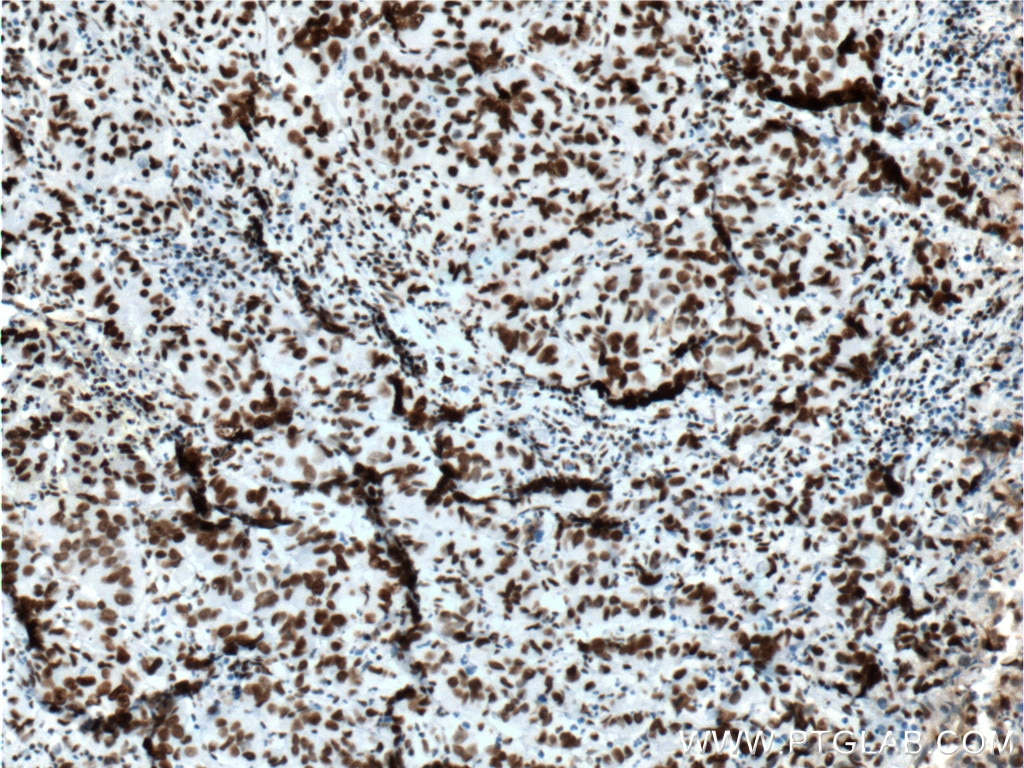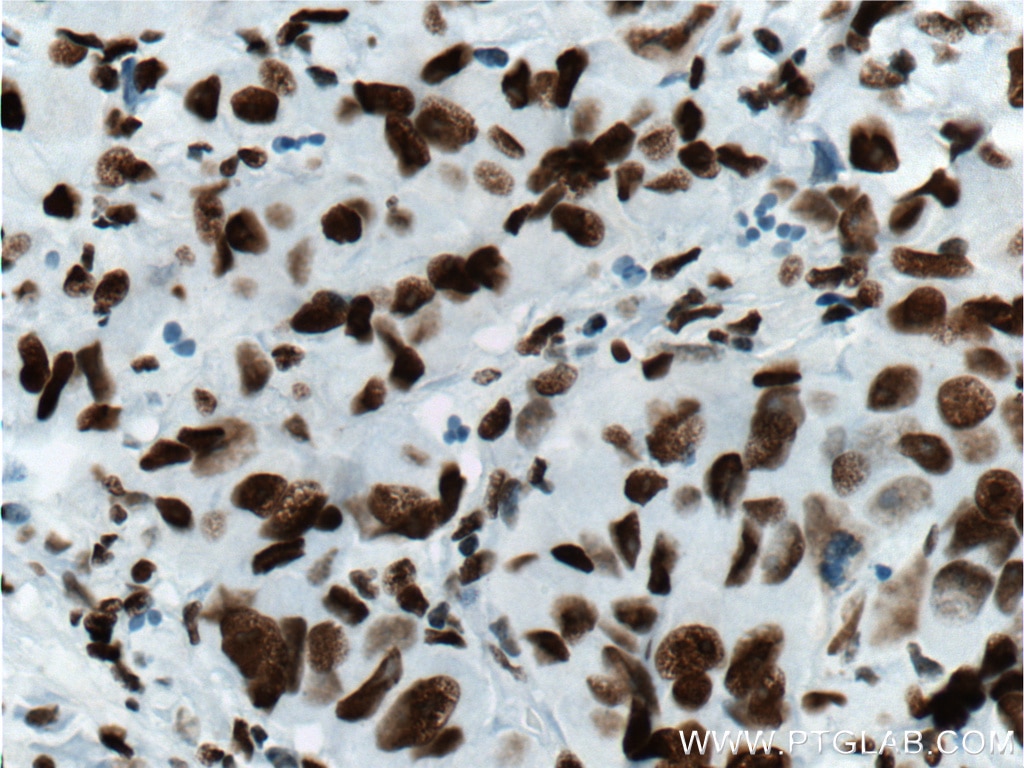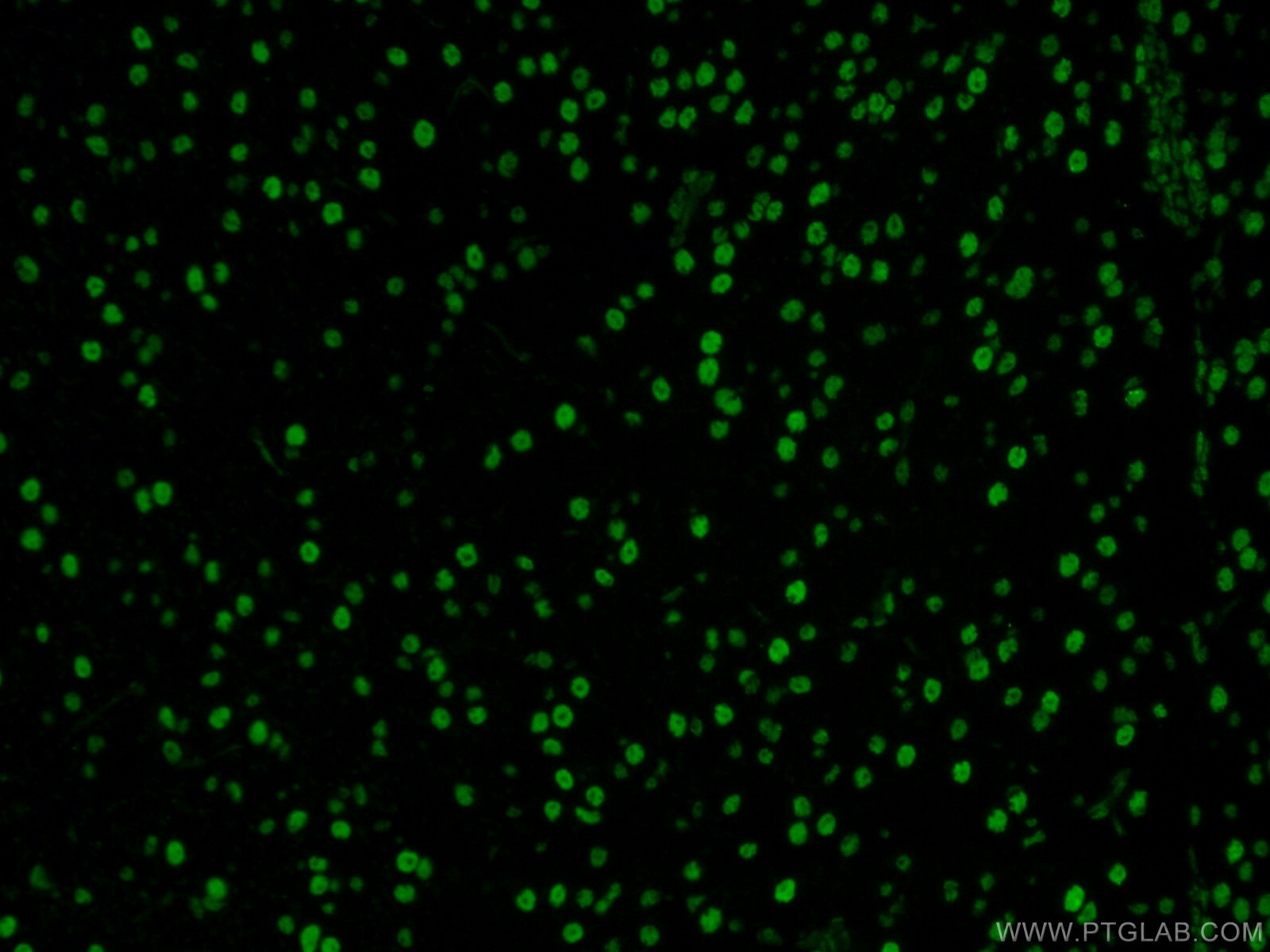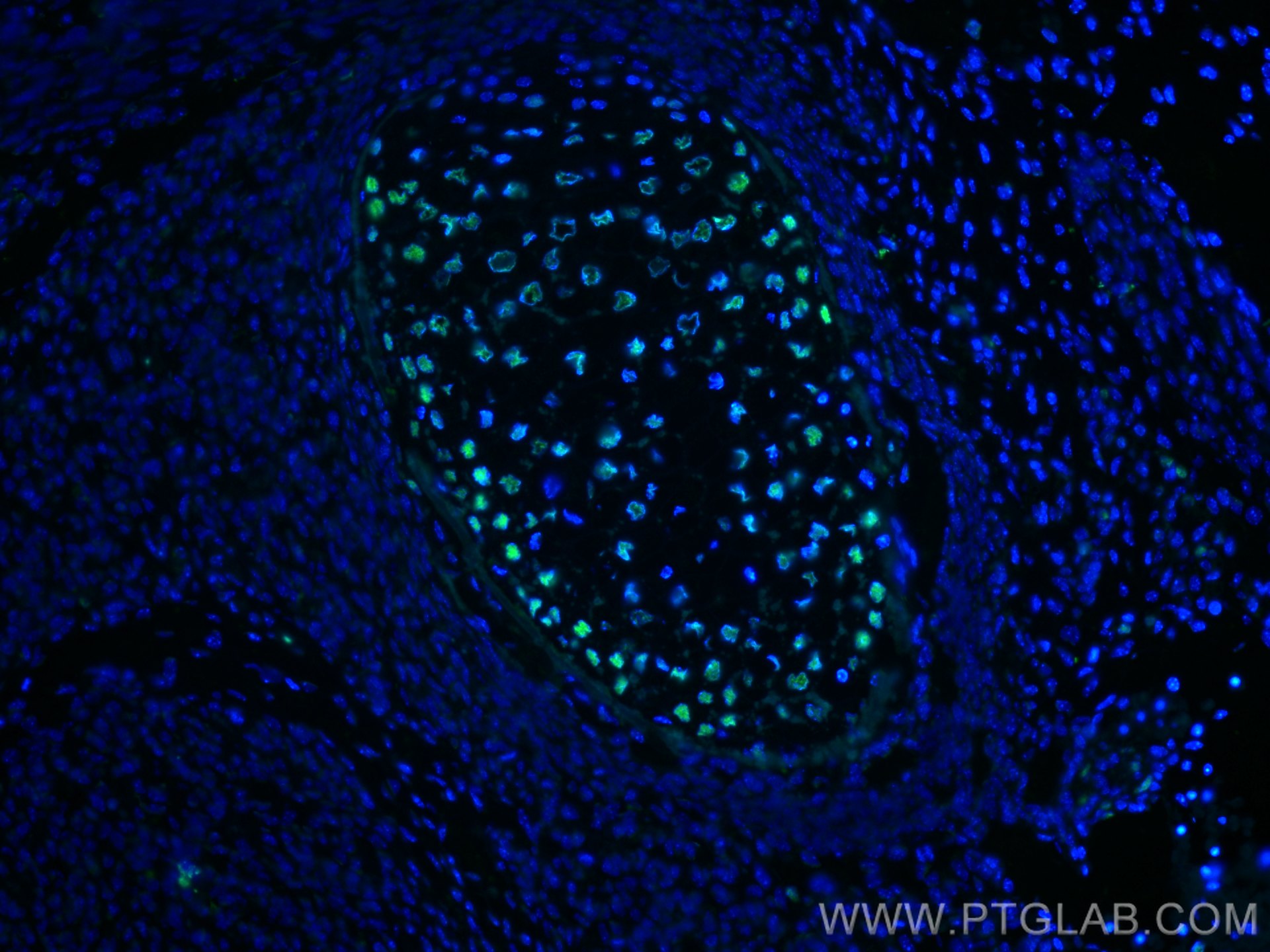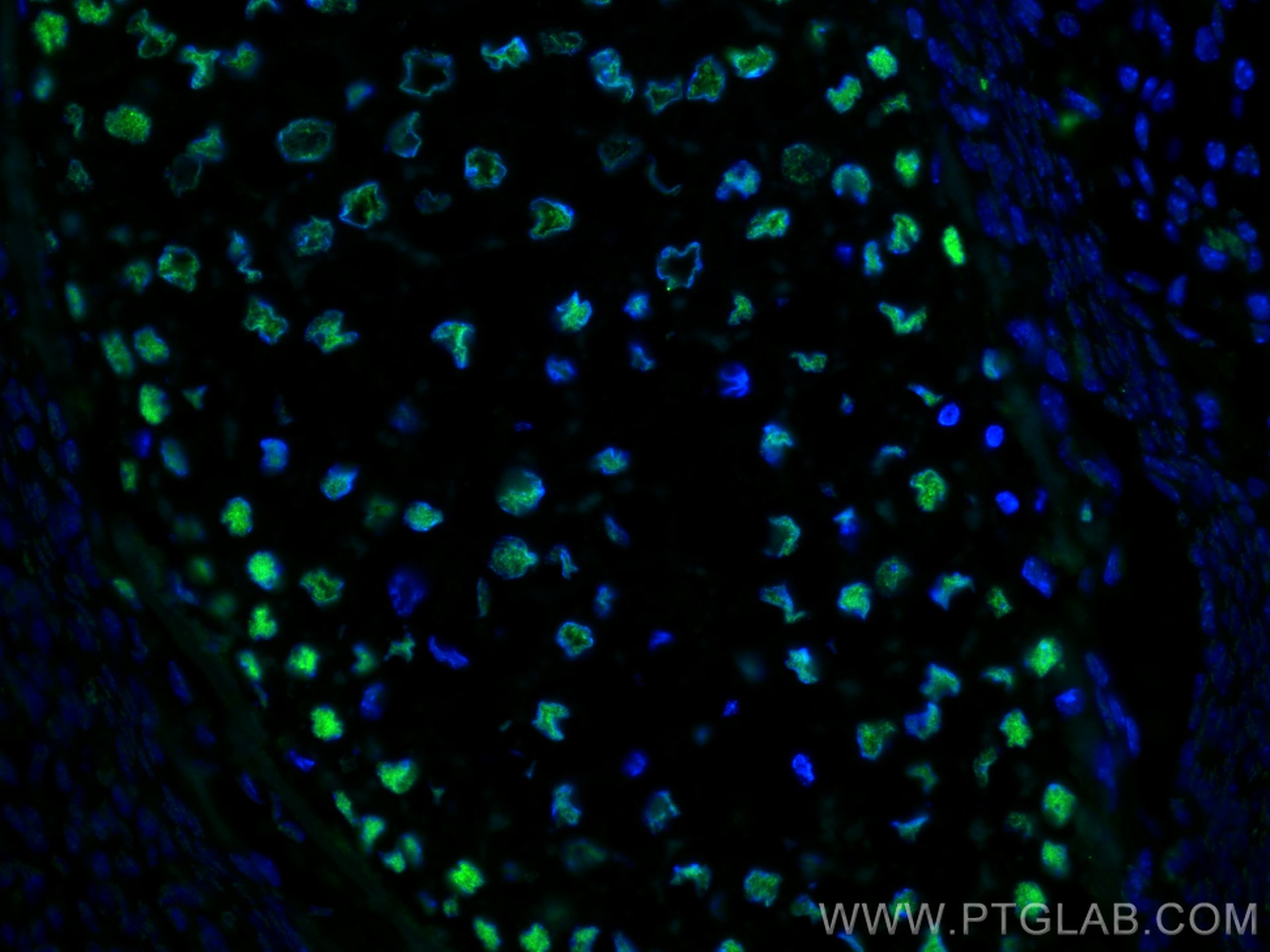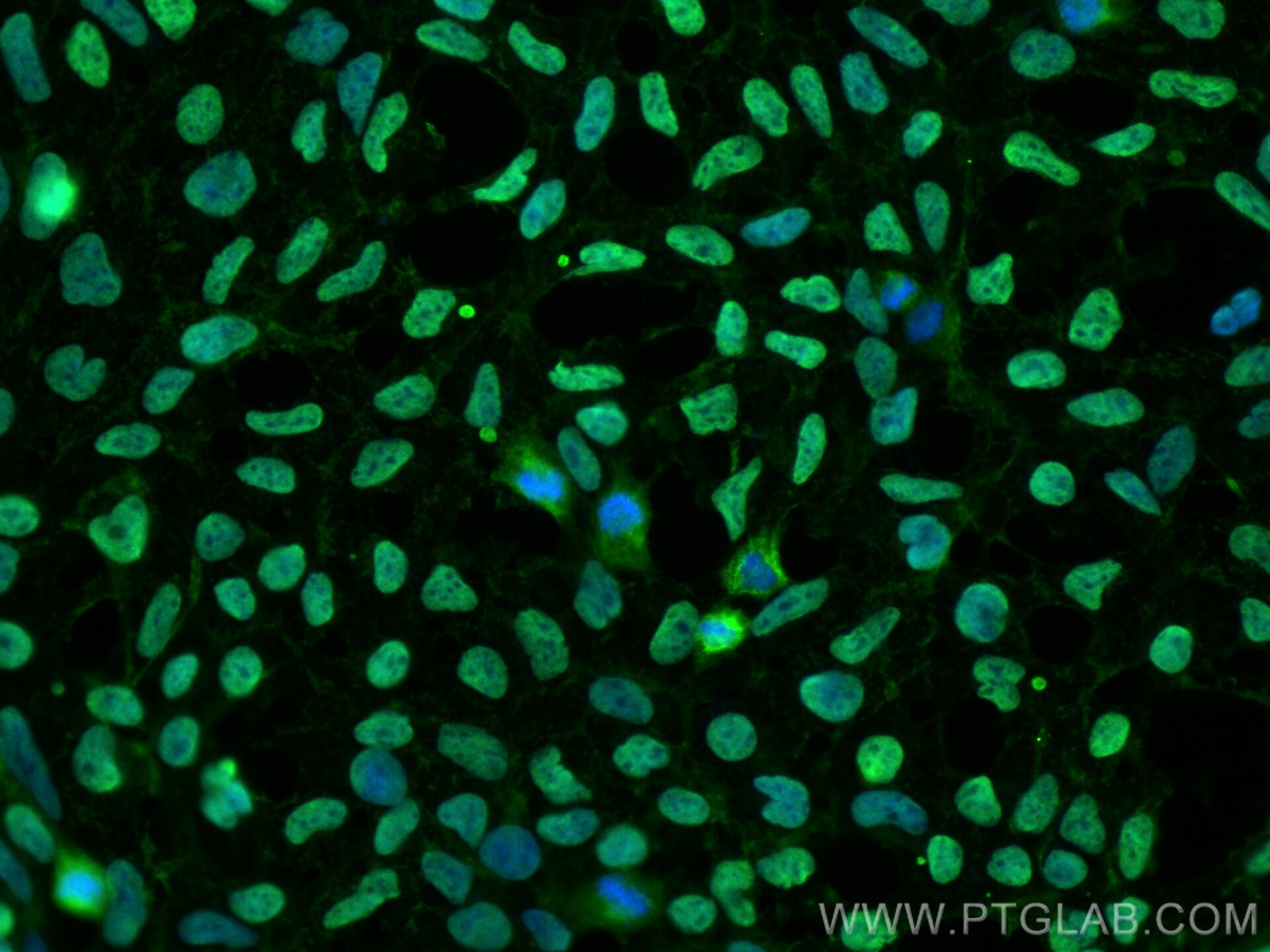- Phare
- Validé par KD/KO
Anticorps Monoclonal anti-DACH1
DACH1 Monoclonal Antibody for WB, IHC, IF/ICC, IF-P, Indirect ELISA
Hôte / Isotype
Mouse / IgG1
Réactivité testée
Humain, rat, souris
Applications
WB, IHC, IF/ICC, IF-P, Indirect ELISA
Conjugaison
Non conjugué
CloneNo.
3B6D2
N° de cat : 60082-1-PBS
Synonymes
Galerie de données de validation
Informations sur le produit
60082-1-PBS cible DACH1 dans les applications de WB, IHC, IF/ICC, IF-P, Indirect ELISA et montre une réactivité avec des échantillons Humain, rat, souris
| Réactivité | Humain, rat, souris |
| Hôte / Isotype | Mouse / IgG1 |
| Clonalité | Monoclonal |
| Type | Anticorps |
| Immunogène | DACH1 Protéine recombinante Ag4474 |
| Nom complet | dachshund homolog 1 (Drosophila) |
| Masse moléculaire calculée | 79 kDa |
| Poids moléculaire observé | 97-110 kDa |
| Numéro d’acquisition GenBank | BC021219 |
| Symbole du gène | DACH1 |
| Identification du gène (NCBI) | 1602 |
| Conjugaison | Non conjugué |
| Forme | Liquide |
| Méthode de purification | Purification par protéine G |
| Tampon de stockage | PBS only |
| Conditions de stockage | Store at -80°C. 20ul contiennent 0,1% de BSA. |
Informations générales
DACH1, a homologue of the Drosophila dachshund gene, is a key regulator of cell fate determination during eye, leg, and brain development in the fly. Through interacting with NCoR and Smad4, DACH1 is able to inhibit the transforming growth factor-beta (TGF-beta) signaling pathway. DACH1 can inhibit breast cancer cellular proliferation via cyclin D1, suggesting a possible role in tumor suppression. Additionally, DACH1 plays an important role in negative regulation of RANKL (Receptor activator of NF-kappaB ligand ) gene expression in marrow stromal/preosteoblast cells. Dach1 expression is enriched in rECs, which are associated with osteoprogenitors and bone-resorbing osteoclasts, and overexpression of DACH1 in postnatal mice induces a strong increase in arteries and type R capillaries, leading to local metabolic changes and enabling trabecular bone formation in normally highly hypoxic areas of the diaphysis (PMID: 39528700). Moreover, Loss of DACH1 expression might be involved in endometrial cancer progression. Four isoforms of DACH1 are produced by alternative splicing, but isoform1(97-110kd) is the predominantly expressed form in tissue. This antibody is a mouse monoclonal antibody raised against residues near the C terminus of human DACH1.
